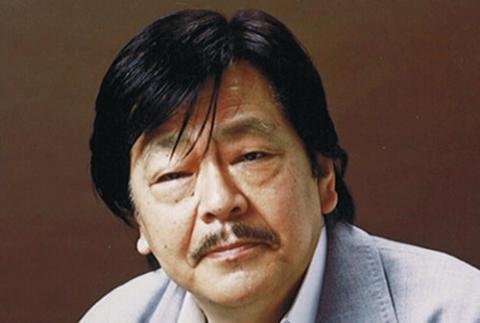Brevity can be beautiful

What exactly is wrong with Yasutaka Tsutsui’s The Maid? Not very much really. Except one thing: it should never have been a novel. By Shane Creevy.
Yasutaka Tsutsui is a renowned Japanese writer, whose work is now beginning to be read in translation. The Maid is his fourth novel published in English by Alma Books and covers the exploits of poor unfortunate Nanase.
She has been blessed with telepathic abilities – or cursed rather.
Afraid of being discovered as a mind-reader she works as a maid, never staying with one family too long. When we first meet her she has just started with the Ogata family. A semblance of family harmony is maintained only by the din of the television: the father is a cheat and the mother treats Nanase with contempt.
And from there the novel repeats itself. Each new family Nanase meets reveal their own selfishness. Each family is falling to pieces and each one treats her with disdain.
When we discover that Nanase has taken up a position as maid for Shinzo Negishi there are signs of hope. Maybe the plot will move in some interesting directions: what if Nanase’s powers were found? Would she be ostracised for the rest of her life, as she fears? Would she be able to work as a crime-fighting detective, arresting people for the most damning of all crimes, ThoughtCrime?
Through Shinzo we discover Nanase’s father had irregular brain activity but there is nothing much more to be learned. Nanase quickly moves to another middle-class family and immediately the story begins all over again.
At the end there is no clue as to what the future holds for Nanase. There are simply eight chapters, eight families, and one story repeated each time.
So why could this not have lived as one story, one much shorter but perhaps more interesting for its very brevity?
It seems that many contemporary writers are afraid of the short story. And so they should be, if sales are the highest zenith to which they pander.
Short stories are tricky items for a book-buying public. We mull over the question of whether it will be useful to invest our time in a story, only for it to be taken away almost as quickly as it had started.
But that is not the case. Good short stories, like any good novel, will live long in the memory.
I was only a chap when we were made read Liam O’Flaherty’s ‘The Sniper’ in school and I have never forgotten that story.
As Stephen Kings writes, “Once, in the days of the old Saturday Evening Post, short fiction was a stadium act; now it can barely fill a coffeehouse and often performs in the company of nothing more than an acoustic guitar and a mouth organ”.
So please, read Frank O’Connor, Stephen Crane, Raymond Carver (especially ‘Cathedral’), Flannery O’Connor, Edgar Allen Poe and Anton Checkov (just some of my favourites).
There is so much gold dust out there but, because they are short stories, people don’t know about them. I guarantee, if you invest time with them, the rewards can be just as pleasing as a novel, and you won’t have wasted your time reading a 700 page snooze-fest!
 Tsutsui is the winner of various awards, including the Izumi Kyoka Prize, the Kawabata Prize and the Yomiuri Literary Prize. He is the author of over 30 novels in Japanese, four of which have been translated and published by Alma Books.
Tsutsui is the winner of various awards, including the Izumi Kyoka Prize, the Kawabata Prize and the Yomiuri Literary Prize. He is the author of over 30 novels in Japanese, four of which have been translated and published by Alma Books.
The Maid
Translated by Adam Kabat
Paperback, pp217
